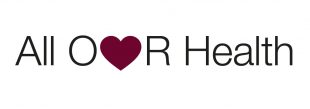 Historically, public health was primarily concerned with the management of sanitation and disease. Over the twentieth century, the focus of public health shifted towards how individuals respond to health concerns. This includes how we as individuals manage and look after our own health to the lifestyle choices we make.
Historically, public health was primarily concerned with the management of sanitation and disease. Over the twentieth century, the focus of public health shifted towards how individuals respond to health concerns. This includes how we as individuals manage and look after our own health to the lifestyle choices we make.
Modern life poses particular public health challenges. There are still, and in many ways increasing, inequalities in health seen in different sections of society. These are seen as a result of economic, educational and social influences. Alongside this, easy access to unhealthy food choices and an increasingly sedentary lifestyle mean that it is very easy to adopt unhealthy behaviour. When this is combined with the growing pressure being placed on the health service, protecting health and health promotion are essential for the health and wellbeing of our society.
The Beveridge report in 1942 spoke of the five evils of society; Idleness, Squalor, Want, Ignorance, and Disease, encompassing the impact of poverty, lack of education and employment and ill health on the overall health and well being of the population. The hope of the NHS was that by offering health care to all that there would be less ill health in years to come and inequalities be levelled. Of course increasing advances in health care and technology has meant that we can treat more ill health and people live longer. The expectations are also much higher and costs in health care continue to grow. Ignoring the impact of the wider environment on health is not cost effective as shown by the Kings Fund analysis[i]. Today the original five evils, as coined by Beveridge, remain some of the biggest challenges along with isolation which includes digital exclusion. In today’s society being unable to access information on line and via other media sources puts people at significant disadvantage. It is vital we cultivate a shift in the mindset of all health and care professionals, towards health improvement and protection and away from traditional models of treating illness. To also thinking ‘what can we all do to make a difference at individual, community & population level to protect the health & wellbeing of our population?’

We know that Florence Nightingale herself was a great proponent of public health and the importance of considering the health of communities and populations in all settings. The RCN is currently celebrating the nursing contribution to public health stemming the last 150 plus years through an exhibition currently available at the RCN Library and on line. The exhibition charts the development of public health nursing history back to the mid 1800’s and the rise of social reform movements at the time, way before the more recent discussions on health needing to be seen as a ‘social movement’ in the national health strategy, Five Year Forward View.
Public Health England (PHE) has developed, All Our Health, which is a call to action for all health and care professionals to embed and extend prevention, health protection and promotion of wellbeing and resilience into practice. All Our Health provides a framework and tools and resources to support health promoting practice.

The importance of public health nursing has arguably never been stronger and the new nursing midwifery and care staff framework, Leading Change, Adding Value emphasises the role of nurses, midwives and care staff have in health promotion and prevention.
So while infectious diseases are not the overriding issue they once were there are still challenges managing disease such as tuberculosis and HIV and from emerging infections such as the Zika virus and Ebola. Antibiotics, once considered the wonder drug in combating infectious diseases are under considerable threat as bacteria have become resistant to them. Antimicrobial resistance (AMR) is probably one of the biggest public health challenges we face as we run out of antibiotics to treat infections. During the PHE short ‘week of action on protecting health’ 14th to 16th Nov, is an opportunity to focus on how we can work to support AMR, tuberculosis and immunisation. This will coinciding with World Antibiotic Awareness week and looking forward to winter preparedness. The aim is to engage with and hear from nurses, midwives and other health and care professionals, policy leads and other experts, showcasing evidence, good practice and some of the diverse roles of those specialising in this area, learning from and sharing information and facilitating discussions between these groups.
Join on Twitter, using the hashtag #ProtectAoH or sharing your stories to create a social movement for health. Use the Public Health Facebook page which is open to anyone to join.
Helen Donovan, Professional Lead for Public Health, Royal College of Nursing
[i] Kings Fund (2013): Improving the Public’s health https://www.kingsfund.org.uk/publications/improving-publics-health
